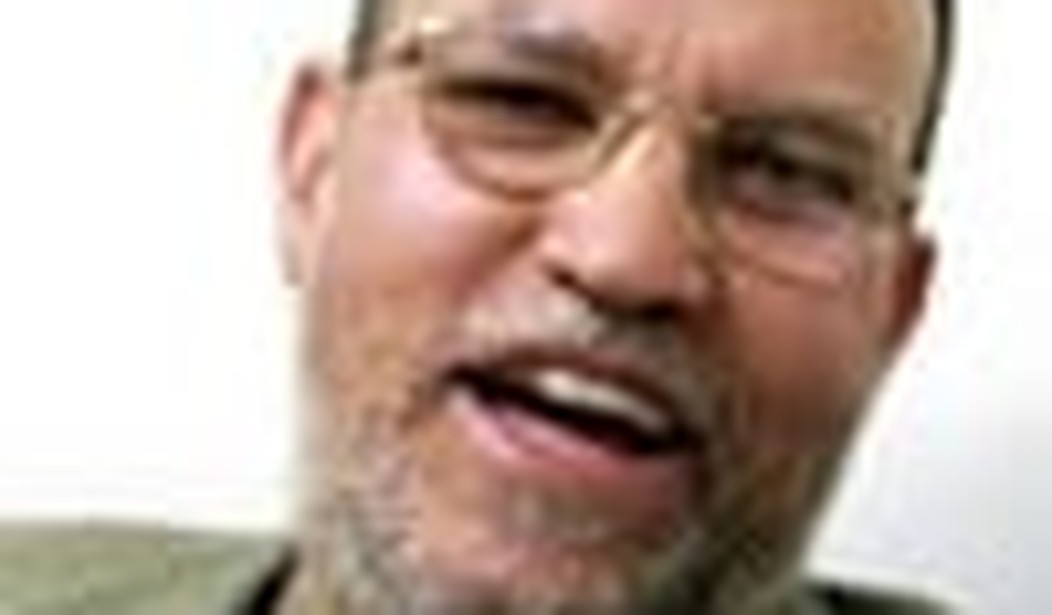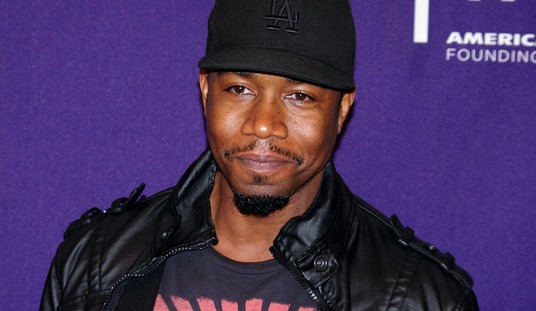The grand question in Egypt’s upcoming elections is the new role of the major Islamist political factions — and whether they are really committed to playing by democratic rules. Chief among the Islamists is the Muslim Brotherhood (MB), an organization whose revivalist doctrine has spawned political movements and terrorist organizations around the world.
Optimistic assessments about the MB have focused on recent propaganda from its websites, the Arabic-language Ikhwanonline.com and English-language Ikhwanweb.com. Limiting one’s view in that way, however, ignores the rigorous educational program that the group mandates — and the content of what the group is telling Egyptian society.
In an editorial for Dar al-Hayat, a London-based Arabic paper, senior Muslim Brotherhood [MB] member Issam al-Aryan (also spelled Essam al-Erian) laid out the group’s full intentions. Although the Brotherhood intends to respect democracy at the present time, al-Aryan’s piece proves that the Brotherhood is still very much attached to the idea of ruling society through Islam, not elections.
Initially, the Muslim Brotherhood wants to spread its ideology throughout the society, and not immediately seize power. Al-Aryan’s editorial shows that the group wants to concentrate on popularizing itself while the weak parties take turns at governing post-Mubarak Egypt. When the MB has achieved public support in this phase, it will ride the wave of popularity into forming a society more in line with its idea of an Islamic state.
The MB also supports creating multiple political parties that can be directed by the central organization and according to its dictates. With many parties, the MB could peddle Islamism to all the various factions of society — even those wary of the group’s power.
In the meantime, the MB’s current “Freedom and Justice Party” would cooperate with democracy and win possibly as many as 1/3 of the nation’s votes.
For those who think that the MB has reformed or embraced new democratic tendencies, al-Aryan draws his conclusions directly from the texts of Hassan al-Banna, the organization’s founder. As al-Aryan’s editorial suggests, the intensive ideological indoctrination of MB members undercuts attempts to alter the group’s fundamental desire for some form of Islamist government. Unable to read Arabic, many Americans lack access to the clearest statements of intent made by MB members. In the spirit of alleviating that problem, my translation of the editorial follows on the next page.
(Translation)
Editorial in Dar al-Hayat
The ongoing Egyptian revolution continues, and we are trying together to restore the momentum, to accomplish its remaining aims. At its forefront is the democratic transition, which we see really began with the issuing of a law establishing political parties and the announcement of the date of upcoming parliamentary elections. This [development] means the start of preparation for these elections. And this transition necessitates questions about the various powers and particularly the “Muslim Brotherhood.”
The first question: Has the organization of the Muslim Brotherhood transitioned to [become] a political party? And this question is connected in the issue of power and the extent of its centrality in the thought of the Muslim Brotherhood. The Muslim Brotherhood sees the starting point in creating the complete change is the hearts [souls] of the people, and not the ruling power. The martyr Imam Hassan al-Banna said, under the title Where Do We Start, “The formation of nations, the education of peoples, the realization of hopes, and the promotion of principles is required from the nation that tries to do this [rule], or the group that calls for this; to have at least great psychological strength in a number of things: strong will that does not touch on weakness; firm loyalty that is not colored or treacherous; dear sacrifice without hesitation or stinginess; knowledge of the principle with faith in it and appreciation for it, that protects from error, deviation, and bargaining, or being tricked by that which is not it” [From the letter, “To What Do We Call the People”].
For this [reason], the aim of the Muslim Brotherhood was clear and defined. Al-Banna also says, “The aim of the Muslim Brotherhood can be summarized [as being confined to] the formation of a new generation of believers, educated in the teachings of true Islam, working to ‘color/baptize’ the nation with the complete Islamic ‘coloring/baptism’ in all aspects of life. And who can ‘color/baptize’ better than Allah? And it is He whom we worship (Sura Al-Baqarah Verse 138). The means of [accomplishing] this can be summarized in changing the general custom and educating the supporters of proselytizing [for Islam] on these instructions until they become models for others in adherence to it, concern for it, and accepting its rulings” [From the Message of the Fifth Conference].
Regarding governance, which is the goal of political parties, the position of the Muslim Brotherhood is also defined by al-Banna:
“The Muslim Brotherhood does not demand rule for themselves [alone]. For if they found in the nation someone preparing to handle this burden, carry out this trust, and govern according to a Quranic, Islamic platform, they will be his soldiers, supporters, and helpers. However, if they do not find [such people] that are ruling from the platform [of Islam], then they will work to seize it from the hands of any government that is not ruling by the decrees of Allah. On this, the Brotherhood is more rational and more determined among other things in undertaking the task of governance while the hearts of the nation are in this state [without Islamic government]. There must be a period of spreading the principles of the Brotherhood, and prevailing, and the people learning about how to place the public interest over the private interest” [Also from the Message of the Fifth Conference].
Then he [al-Banna] appeals to the nation, saying, “So educate the people in this, to demand Islamic rights from its government, and so the Muslim Brotherhood works.”
He corrects the erroneous understanding sneaking into the hearts, saying, “Nothing is deeper in error than some people thinking that the Muslim Brotherhood at any era of their mission [call] has been a tool for any government, implementing any aim other than their own, or working for a platform other than their own. Let anyone who does not realize this, be he a member or a non-member of the Muslim Brotherhood, know this” [Again, from the Fifth congress].
For years, I have thought and said within workshops that we convene as the Brotherhood leadership that governing is around the corner, within a sound democratic system, and that we have to turn the group into a political party seeking to contest for power and governance.
And I say today, while Egypt is on its way to a democratic transition, that I reconsider the view of this order and I go back to the opinion of the late teacher Tawfiq al-Shawi in the governing council in 1995. It might be better to keep the Muslim Brotherhood as a broad Islamic League even if the political party reaches power and governance, to watch over it and to control the party’s performance with intellectual power and great popularity; [the MB] will support it if it does well, question it if it deviates, hold it accountable if it abuses, and dismiss it through the people’s power if it fails miserably.
The second question: Does the Muslim Brotherhood establish one party or several parties?
When forming parties is possible simply by registering and it only requires a few thousand founding members, it becomes available to all individuals [to make a party], provided that they have legitimacy and popular support, and the ability to compete and survive.
As for the Muslim Brotherhood as a popular body, it has the duty to assign some of its members to establish a party, leading in a political function in the competitive partisan field. It does not have the right to stay far from this field after it used to nominate its members for parliament, received more than 20 percent of the seats, and a quarter of a century ago decided to mandate the Guidance Bureau in forming a political party. Now comes the moment of execution.
As for having more than one party, this is a strange and odd policy. How can a popular power that seeks participation in decision making, or entering coalition governments, or even governing by itself, fragment its efforts and disperse votes in favor of the party? The opposite is true, and [forming several parties] is what the duty calls for. The Muslim Brotherhood calls to all those concerned with Islamic issues, and implementing the rulings of Islam, to brotherhood, cooperation, and loyalty.
It is correct that strong parties are being formed in Egypt, able to provide, within the framework of the four basic streams: the Islamist, the national, the liberal, and the left-wing, and with them [the left-wingers] a party of those who possess economic interests. If Egypt needs, five or six major parties can combine or ally, or compete over the trust of the people. Mostly [it seems] the situation will be construed this way, even if tens of parties are established.
If the Muslim Brotherhood received about 26 percent of the Egyptian votes in the last elections, in 2005, where the second and third stages were rigged, their share in the next elections could be around this percentage more or less. In light of this, the Muslim Brotherhood is trying to get 30 to 35 percent of the seats. [Considering this,] Can the centrist, national, Islamic vote be split in the next elections?
If the Muslim Brotherhood has 100 units of effort, I expect it to be distributed as follows:
75 units of effort for working on societal proselytizing [calling], educational, social, cultural and intellectual work; and 25 units of effort for party work and building of their [the Muslim Brotherhood] Party, the Freedom and Justice Party. Of course, the organization will support with all its power the Freedom and Justice Party during the election season. During this period, the Muslim Brotherhood members will dedicate themselves to advertising and voting for the party. Otherwise, it is of basic and principal importance that the work remaining be among the people.
– A leader in the Muslim Brotherhood organization of Egypt









Join the conversation as a VIP Member